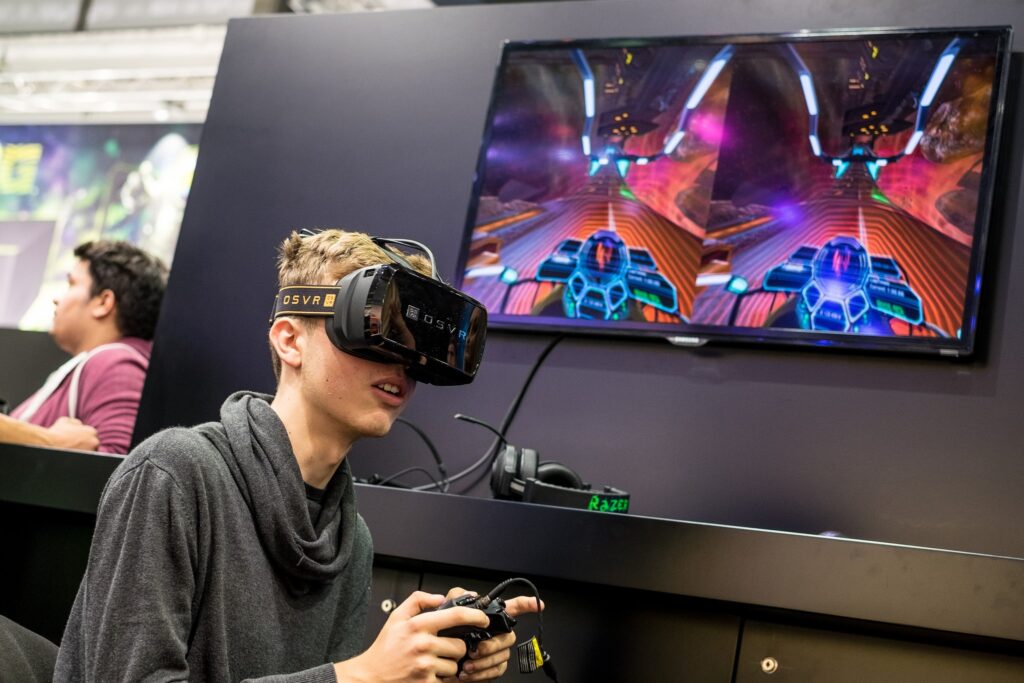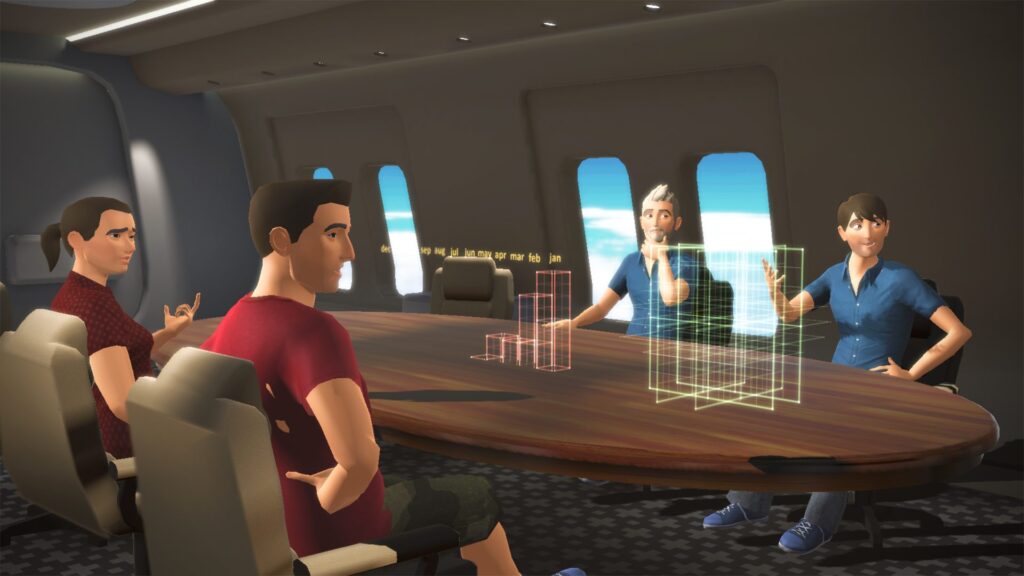Introduction to Collaborative Virtual Reality
-
The Dawn of Virtual Reality
In technology, few developments have sparked as much excitement and anticipation as Virtual Reality (VR). Do you remember when being fully immersed in a digital environment was only a sci-fi fantasy? That wish has already been fulfilled.
-
The Evolution of Collaborative Virtual Reality
Collaborative Virtual Reality is the result of the evolution of the VR world through time. Real-time interaction between numerous users in the same virtual environment allows for creating shared experiences that cut over geographical borders. Isn’t it amazing how technology can ‘transport’ us to an entirely new location?
Exploring the Components of Collaborative Virtual Reality
-
Immersive Visual Environment
A critical component of Collaborative VR is its immersive visual environment. Imagine donning your virtual reality (VR) headset and entering a new environment, such as a bustling metropolitan, a tranquil beach, or even a galaxy far away!
-
Real-Time Multi-User Interaction
The most exciting part of Collaborative Virtual Reality is communicating with other users in real-time. You can speak, gesture, and even high-five your friends in the virtual world, giving you a surreal sense of ‘presence.’
-
Interactive Virtual Objects
Next up are the interactive virtual objects. In line with how things are in the actual world, you interact with objects in the virtual environment. Want to play virtual chess with a friend sitting miles away? You got it!

Application Areas of Collaborative VR
-
The Virtual Classroom
One of the most promising applications of Collaborative VR is in education. Imagine a virtual classroom where students from different parts of the world can learn together, interact with 3D models, and embark on virtual field trips!
-
Professional Skills Training
Collaborative VR also opens up new vistas for professional training. Surgeons can practice complex procedures in a risk-free virtual environment, engineers can troubleshoot virtual machinery, and the possibilities are endless!
Entertainment and Gaming
-
Immersive Multiplayer Gaming
If you thought gaming was fun, wait until you try immersive multiplayer VR gaming. Collaborative VR takes gaming to a new level, where you and your friends can battle dragons or race supercars in an utterly immersive environment.
-
Virtual Concerts and Events
Collaborative VR also has the potential to revolutionize the entertainment industry. Imagine donning your virtual reality (VR) headset and entering a new environment, such as a bustling metropolitan, a tranquil beach, or even a galaxy far away!
-
Business and Productivity
Virtual Meetings and Conferences
With Collaborative VR, businesses can conduct virtual meetings where attendees feel like they’re in the same room. This could change the face of remote work and global collaboration.
-
Prototyping and Product Design
Imagine being able to design a product in a virtual space collaboratively, test it, and make changes in real-time. Collaborative VR makes this possible, transforming the way businesses create and innovate.
The Future of Collaborative VR
-
Predicted Developments
The future of Collaborative VR is rife with possibilities. As technology improves, we can see even more immersive experiences, seamless integration with AI, and the ability to transmit physical sensations in the virtual world!
-
Emerging Challenges
However, with these exciting possibilities come challenges. Issues like cyber-security, privacy, and the digital divide are addressed to guarantee the sustainability and equitable growth of Collaborative VR.
Conclusion: Final Thoughts on Collaborative VR
Collaborative Virtual Reality is a revolutionary technology promising to transform various facets of our lives. As we embrace this new digital age, imagining what lies ahead is exciting. Are you ready to leap into this mesmerizing virtual world?
FAQs for Collaborative VR
What are key components of Collaborative VR?
It includes an immersive visual environment, real-time multi-user interaction, and interactive virtual objects.
Where can Collaborative VR be applied?
It's used in education, professional training, entertainment, gaming, business, and product design.
What’s the future of Collaborative VR?
It's expected to provide more immersive experiences, integrate with AI, and transmit physical sensations virtually.
What challenges does Collaborative VR face?
Challenges include issues of cybersecurity, privacy, and the digital divide.

